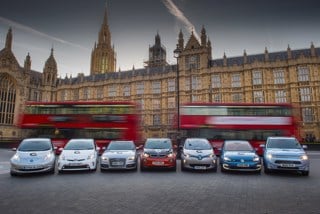Professor Colin Tourick, management consultant specialising in the automotive fleet and asset finance markets
Leasing companies have done a commendable job for their clients since the start of lockdown. By offering rental deferrals and contract extensions they have helped fleet managers minimise costs and preserve cash.
But, now it’s crunch time. The furlough scheme has held back what would otherwise have been a tsunami of companies announcing mass staff redundancies. However, those mass redundancies have clearly started.
We’re only hearing about the household names, but thousands of SMEs are making staff redundant too, and, over the next few weeks, we can expect many thousands of cars to be returned to leasing companies, leading to a spike in used vehicle sales, a reduction in used car prices and dents in leasing companies’ balance sheets.
In the short term, we can expect the general level of demand in the economy to be low.
Companies will be cautious about taking on staff and much more prescriptive about the journeys their employees are making, insisting on the use of Zoom etc. for most client meetings and minimising the number of meetings in person.
In fact, now that companies have discovered that meetings can take place satisfactorily online, one possible long-term scenario is that the number of business miles may have peaked, never to recover to previous levels.
Once upon a time such a statement would have caused great concern in the leasing industry and – given that a strong leasing industry benefits fleet managers in so many ways – it would have caused concern to fleet managers, too.
Fortunately, the leasing industry is much more resilient against a downturn in corporate leasing these days than in the past. Most lessors have been building their personal leasing (B2C) portfolios, and there is still plenty of scope for much more growth in this area of their businesses.
The growth in home deliveries means the overall volume of van leasing shouldn’t be affected as badly as the downturn for cars. A short, sharp economic downturn should not be a disaster for the industry.
The negligible amount of benefit-in-kind tax payable over the next few years on zero emission cars offers a real opportunity for leasing companies to bolster the number of vehicles on their books. If they can persuade employees who formerly took cash allowances to take EVs as company cars, or persuade employees who have never had a company car to take EVs under salary sacrifice, the leasing companies should be able to cushion some of the blow they will undoubtedly experience.
It’s not all doom and gloom. There’s a lot for leasing companies to go for right now. These days will pass.


















Login to comment
Comments
No comments have been made yet.